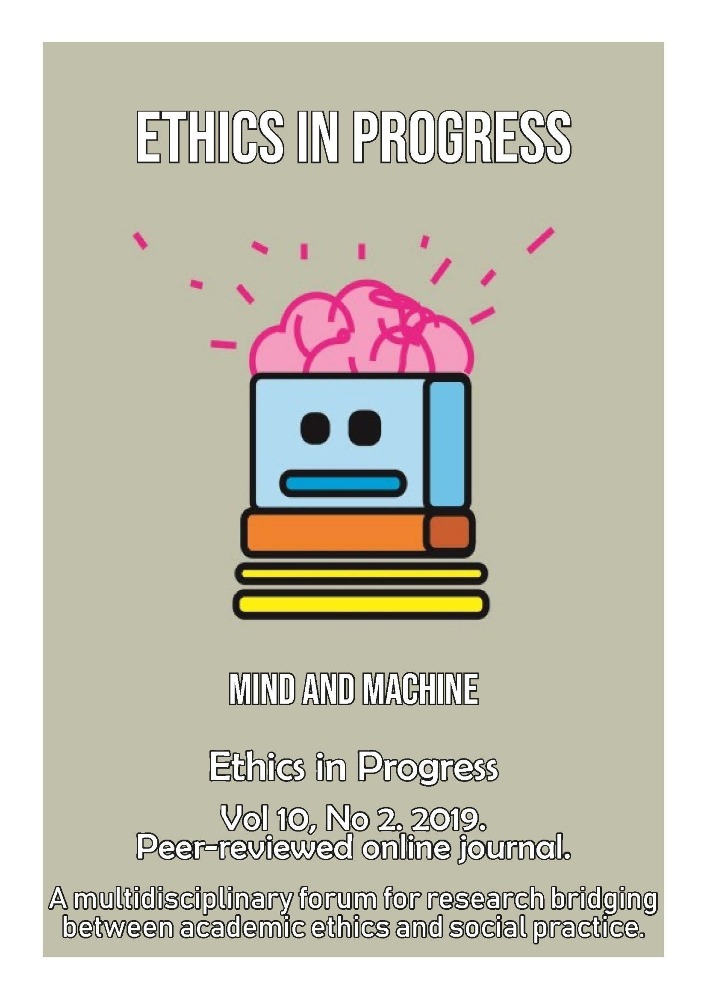Abstract
The paper describes the cooperative board game entitled THREE. The game is inspired by the Three Laws of Robotics. We show how this game may be used as an environment for exploring the ethical problems arising from human-robot interaction. We present the idea behind the game, discuss its cooperativeness and analyze the dilemmas encountered by players during the gameplay. We also present and discuss the results of the game evaluation.Funding
MNiSW grant 261/ WCN/2019/1 “Wsparcie dla Czasopism Naukowych”
References
Apostolellis A., Stewart M., Frisina C., & Kafura D. 2014. “RaBit EscAPE: A Board Game for Computational Thinking.” In: Proceedings of the 2014 Conference on Interaction Design and Children (pp. 349-352). ACM.
Asimov I. 1981. “The Three Laws.” Compute! 11(18):18.
Awad E., Dsouza S., Kim R., Schulz J., Henrich J., Shariff A., Bonnefon J.-F., & Rahwan I. 2018. “The Moral Machine Experiment.” Nature 563(7729):59-64. DOI: https://doi.org/10.1038/s41586-018-0637-6.
Francikowski J. 2018. “Board Games for Natural Science Education.” Homo Ludens 1(11):30-40.
Giger J.-C., Moura D., Almeida N., & Piçarra N. 2017. “Attitudes Towards Social Robots: The Role of Belief in Human Nature Uniqueness, Religiousness and Taste for Science Fiction.” In: Proceedings of I International Congress Interdisciplinarity in Social and Human Sciences, 05 2017.
McCauley L. 2007. “AI Armageddon and the Three Laws of Robotics.” Ethics and Information Technology 9(2):153-164. DOI: https://doi.org/10.1007/s10676-007-9138-2.
Murphy R. & Woods D. D. 2009. “Beyond Asimov: The Three Laws of Responsible Robotics.” IEEE Intelligent Systems 24(4):14-20.
Pochwatko G., Giger J.-C., Różańska-Walczuk M., Świdrak J., Kukiełka K., Możaryn J., & Piçarra N. 2015. “Polish Version of the Negative Attitude Toward Robots Scale (NARS-PL).” Journal of Automation Mobile Robotics and Intelligent Systems 9(3):65-72.
Piper A. M., O’Brien E., Morris M. R., & Winograd T. 2006. “SIDES: A Cooperative Tabletop Computer Game for Social Skills Development.” In: Proceedings of the 20th Anniversary Conference on Computer Supported Cooperative Work (pp. 1-10). ACM.
R Core Team 2013. A Language and Environment for Statistical Computing. R Foundation for Statistical Computing, Vienna, Austria (accessed on 20.03.2017).
Sullins J. P. 2006. “When Is a Robot a Moral Agent?.” International Review of Information Ethics 6(12):23-30.
Tsarava K., Moeller K., & Ninaus M. 2018. “Training Computational Thinking through Board Games: The Case of Crabs & Turtles.” International Journal of Serious Games 5(2):25-44. DOI: https://doi.org/10.17083/ijsg.v5i2.248.
Zavala K. & Odendaal A. 2018. “Black Boxes Out of Cardboard: Algorithmic Literacy through Critical Board Game Design.” Analog Game Studies 5(4). URL=http://analoggamestudies.org





